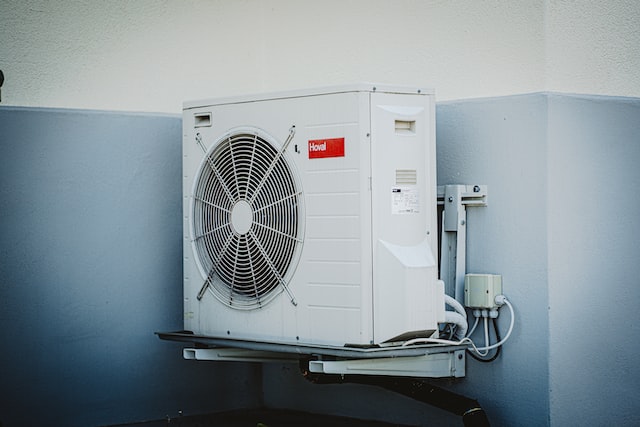
Is your air conditioner freezing up? It’s not unusual to see a chunk of ice on your system in the middle of summer. But what causes this, and what can you do about it?
Your air conditioner comprises several interconnected parts, which can affect the whole system when one goes wrong. In the case of frozen coils, usually, something has gone wrong with the unit’s ability to regulate its temperature.
You can do a few things to try to fix the problem yourself, but in most cases, it’s best to call a professional.
How Does an Air Conditioning System Work?
Most people believe air conditioners work by circulating cool air around a building. This, however, is not correct. Air conditioners, like refrigerators, work by taking warm air from the inside of a room and releasing it outside. The difference is that freezers only need to cool a small, insulated compartment, but air conditioners must cool considerably larger indoor spaces.
Air conditioning systems exist in various sizes and designs, but they all work based on the same principle. They contain refrigerants that quickly transition between gas and liquid phases. These chemicals are contained within coils that travel in a closed loop. The evaporator compressor, coil, and condenser are three stations along the path that controls the refrigerant’s pressure, state, and temperature.
Step 1: The evaporator coil absorbs heat.
The air conditioner draws heated air from the room and circulates it via the evaporator coil. The refrigerant absorbs heat, causing it to change from liquid to gas. The refrigerant is then sent via the loop system to the condenser, where it is discharged as heat. A fan directs cool air into air ducts, which disperse it around the house.
Step 2: Compressor raises the refrigerant temperature
As the name implies, a compressor reduces a gas’s volume by squeezing it tightly between 2 solid objects. This action also boosts the temperature of the gaseous state. This low-pressure gas flows outdoors to a compressor in a cooling system. It then travels to a condenser as a high-pressure, heated gas.
Step 3: Heat is transferred outside
As soon as the refrigerant reaches the condenser, it becomes an extremely hot vapor. However, it is exposed to cool outside air, quickly dissipating its heat. You may have noticed metal fins surrounding your AC unit’s housing before – these are specifically designed to help with heat dissipation. As a result, the refrigerant becomes significantly cooler when it leaves the condenser. Not only that, but high pressure transforms it back into a liquid state. Now that it has cooled and returned to liquid form, it is ready to start station 1 again and repeat the entire process.
What Causes an AC Unit to Freeze?
An issue with the evaporator coil is one of the most common causes of your AC unit freezing. When this happens, the refrigerant cools too quickly and turns into ice. It would be best if you addressed this critical matter as soon as possible.
A lack of maintenance is another factor that can cause your AC unit to freeze. Dust and debris can accumulate on the coils over time, causing them to malfunction. This is why cleaning and inspecting your air conditioner regularly is critical. Two factors can cause an AC freeze-up:
Blocked airflow
You may not realize it, but your home’s air conditioning unit needs a steady flow of airflow to prevent humidity from building up and freezing on the coils. For example, a filthy or clogged filter can impede this airflow and cause your system to freeze. To avoid this, ensure that your system’s filters are changed every 1-3 months.
Mechanical issues or refrigerant leakage
A sophisticated machine like an air conditioner is certain to have some parts that malfunction or become stuck over time. The fans may stop operating, the filters may become clogged, and leaks are inevitable. Any disruptions could result in a pressure reduction, causing the refrigerant to overexpand and become extremely cold. Low refrigerant levels caused by a leak will produce the same result.
Steps to Take to prevent Your AC from Freezing
Your air conditioner is a complex machine with many moving parts. Over time, these parts can wear down and break, causing your AC unit to become less efficient. To prevent this, it’s important to have your AC unit serviced at least once a year. This will ensure that all the parts are in good working condition and that your AC unit will continue to provide you with years of reliable service.
Please do not wait until your air conditioning system fails before servicing. It may be too late by then. Maintenance checks help keep your system functioning smoothly and efficiently. These checkups also aid in the prevention of minor issues from becoming major ones. A skilled Port Charlotte air conditioning technician, for example, will know to look for refrigerant leakage. Low refrigerant levels are frequently the cause of frozen ac coils.
Aside from routine maintenance, there are several things you can do as a homeowner to help your air conditioning system last longer. Changing your system air filter once a month can save you hundreds of dollars in repair costs and keep your system from freezing up when you need it the most.